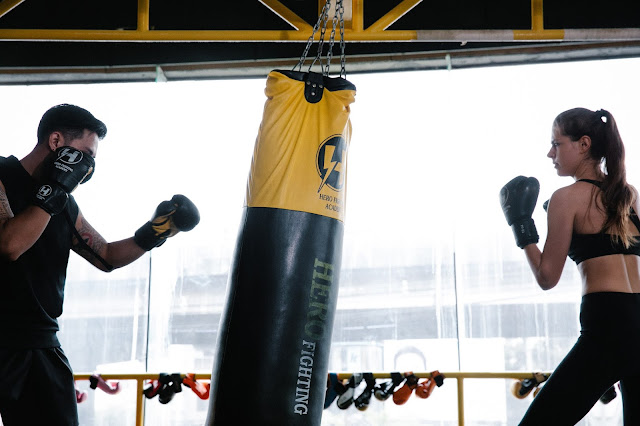If you train or exercise regularly, then you are probably already dabbled in nutrition before and after exercise. This involves dietary choices, strategies, and plans to maximize performance and optimize post-workout recovery. For many reasons, nutrition before and after exercise is an important issue that must be considered.
First of all, by recognizing the nutrition before exercise, we can ensure that no matter what the training content, we can achieve the desired performance. Then, by recognizing the importance of replenishing energy after exercise, we can repair and grow more effectively according to our goals.
In this article, we will discuss various strategies for replenishing energy before and after exercise.
Note: In the title, I used the word "violent". As far as the content of this article is concerned, "vigorous" generally refers to any exercise and training that is intentionally performed and requires physical effort. Basically, I don’t want you to think that this article is only for people doing the heavy lifting.
What is nutrition before and after exercise?
Nutrition before and after exercise involves the strategic choice of foods, drinks, and sports supplements to promote performance, support repair, and enhance the overall effect of the diet.
Many times, we will limit our thinking to thinking that nutrition before and after exercise only contains one thing (for example, thinking that nutrition after exercise is just drinking protein shakes). Therefore, in this article, we will take a broader perspective and Discuss this topic, covering any nutritional behavior or habit with a clear intention before and after exercise.
Who should pay attention to nutrition before and after exercise?
If you read this article, the word "vigorous" aroused your interest and resonance, then it is likely that you have a certain understanding of nutrition before and after exercise.
When discussing nutrition before and after exercise, we must remember that everyone’s lifestyle is different. Your training method is different from mine. The way you replenish energy for yourself is also different from the way you replenish energy for yourself. This is very important because considering individual circumstances can provide us with a better framework to formulate feasible pre-and post-exercise nutrition strategies for us.
Therefore, the question remains: Who really needs to pay attention to nutrition before and after exercise?
In fact, there is a view that everyone who wants to achieve top performance and fully recover after exercise should consider some form of pre-workout and post-workout strategy.
For people who do high-intensity exercise, nutrition before the exercise becomes more and more important because they have to rely on multiple types of energy storage. In addition, those who are on a diet and have calorie deficits must also consider pre-exercise nutrition. These people have limited energy resources. Therefore, when energy is not readily available, arranging meals before and after exercise time can help improve athletic performance.
For those who want to ensure that they can provide adequate nutrition for their body to help repair, nutrition after exercise is equally important. Compared with the general public, anyone who exercises harder (such as twice a day) or exercises under a calorie deficit should pay more attention to post-exercise nutrition.
In the following sections, we will discuss the specific details of nutrition before and after exercise, as well as the best practical methods. I want to make it clear in this section that focus on nutrition before and after exercise is not a bad thing at all, provided that we must consider our own needs and not put ourselves under stress (for example, thinking that we must drink within 30 minutes after exercise Protein shakes can make it work-it's not the case at all).
Nutritional strategies before and after exercise
There are many different ways to replenish energy before and after exercise. So I will introduce some basic principles to keep in mind before and after exercise. Then, we will put forward some relevant suggestions for reference.
What to eat before exercise
When we eat and drink, we must remember that depending on the composition of our diet (the macronutrients in the meal), there may be a certain degree of digestion in the body.
Regarding pre-workout nutrition, some basic guidelines that are consistent with current research recommendations include:
- Meal: 30g carbohydrate + 30g protein
- Time: about 45 minutes to 1 hour before exercise. The mealtime before exercise can be changed, but the general recommendation is 45 minutes to 1 hour before exercise.
Note: Mealtime and ingredients can be slightly changed because we also need to consider what can make us feel good and perform well. Remember, these are only suggestions. "What do you need to eat" to provide energy for good exercise is not hard and fast law.
What to eat after exercise
Exercise, especially after resistance training, is the golden period for our body to perform muscle protein synthesis (MPS). This is the process by which our body uses protein to build muscle and repair.
When a weightlifter mentions the "anabolic window" after exercise, it generally refers to the use of the time after exercise to create an ideal anabolic environment in the body, because after the body consumes energy, it is a better time for muscle protein synthesis. Therefore, we recommend taking high-quality protein and carbohydrates after exercise-they all to help support muscle protein synthesis.
The traditional view is that the anabolic window is limited to a short period after exercise. However, new research shows that the anabolic window may actually be closer to 4-6 hours after exercise.
Regarding the diet after exercise, you can refer to the following suggestions.
- High-quality protein source: usually 20-40 grams is enough. This can be used as a good rule of thumb for increasing muscle protein synthesis. Sources include protein shakes, chicken, egg whites, eggs, turkey, lean beef, bison, and any other low-fat protein sources.
- Source of high-quality carbohydrates: 30-60 grams is usually sufficient. You can choose different carbohydrates.
Note: For elite athletes, people who exercise twice a day, and other specific situations, the above 4-6 hour window may be different.
Important notes on performance and repair
Now that we have the dietary principles and recommendations before and after exercise, it is time to formulate dietary strategies to help you improve your performance and post-workout recovery.
Establish the main meal: The drinks and foods covered by these meals are what your body "accepts" before and after exercise. For example, if you don't want to exercise when you are too full, it may be useful to choose protein shakes and easy-to-digest carbohydrates before exercising.
Measure your meals: To measure meals means to maintain flexibility based on your exercise content when formulating the main meal. Certain exercises are likely to require more energy, so remember that the meal you choose must be able to match the ongoing exercise. For example, after high-volume exercise, you may need to choose to eat a richer meal in a short period to ensure that your body gets proper energy to achieve goals such as muscle hypertrophy.
Use supplements when traveling or busy: Nutritional arrangements before and after exercise are often not satisfactory. Supplements can come in handy at this time. For example, if you are very busy and have to go back to work immediately after exercising, then bring a bottle of protein shake, you can drink it conveniently and at the same time provide your body with a high-quality source of protein.
If you don’t usually feel hungry before and after exercise, using protein shakes or carbohydrate supplements may help ensure that you are prepared for exercise and repaired accordingly. For the nutrition before and after exercise, the diet chosen should be as flexible as possible. Remember to take into account your own needs and prioritize your personal performance, feelings, and persistence.


.png)







0 Comments